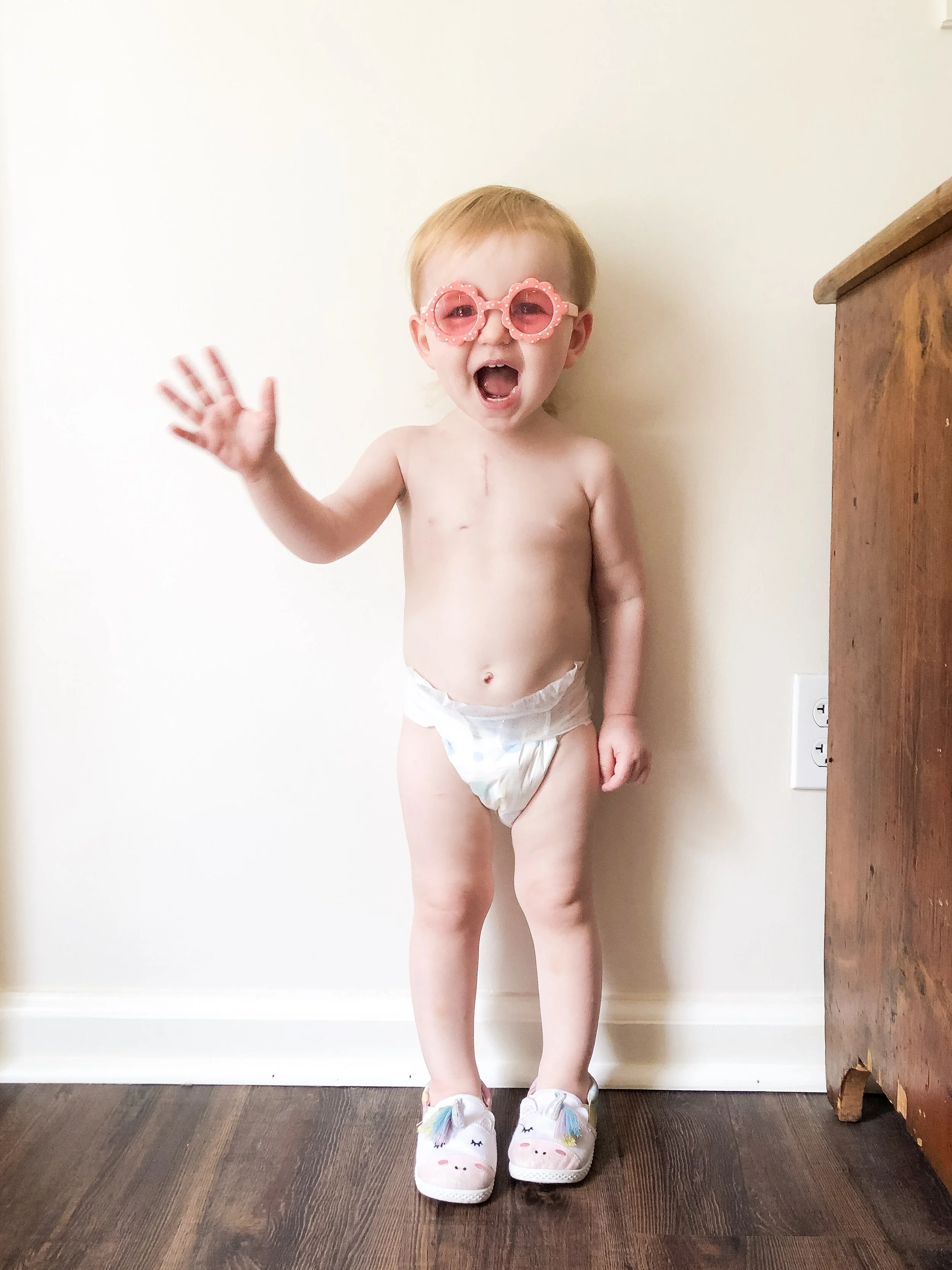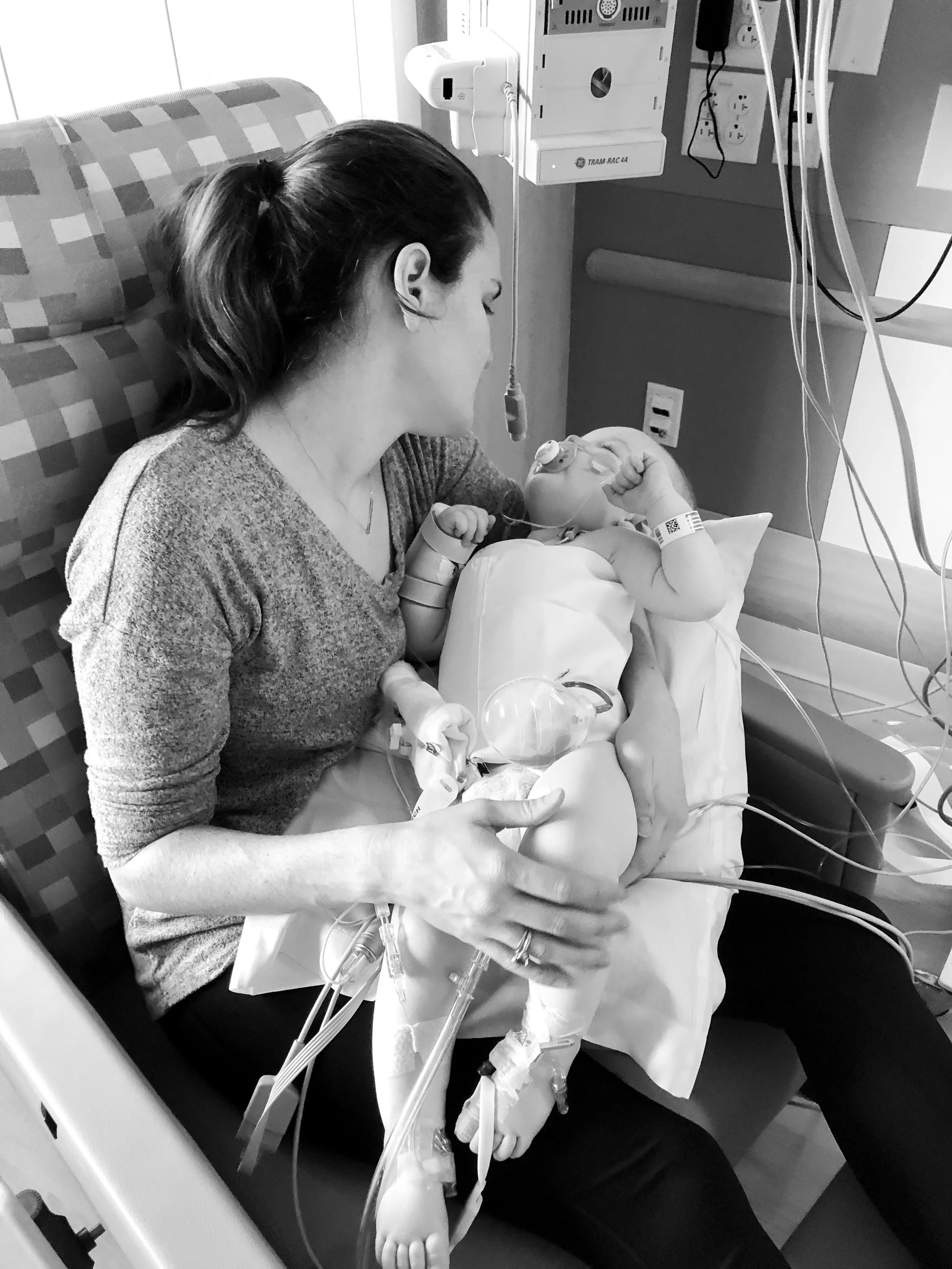It's CHD Awareness Week - and Here's What You Should Know
It’s Congenital Heart Defect (CHD) Awareness Week— and, as many of you may know, it’s a topic that’s close to my family’s heart (pun intended.) To be honest, I knew very little about CHD until my daughter, Maeve, was diagnosed with a vascular ring at 10 months old.
I often wonder, if I’d known more about CHD beforehand, if her diagnosis could’ve been made much earlier, and I think it could have.
For those who might not be familiar, here’s what you should know about CHD:
CHD is the most common type of birth defect, affecting 1 in 120 children
CHD is 60x more prevalent than childhood cancer
About 25% of babies born with CHD are critical, requiring surgery or other invasive procedures within their first year of life.
Funding for CHD research is wildly underfunded in relation to its prevalence among children
According to a study by the CDC, only about 15% of CHD cases are diagnosed in-utero. Pinnacle Health compiled a list of questions that expectant mothers should ask at their 20-week ultrasound to learn more about the health of their baby’s heart:
Do you see four chambers of my baby's heart?
Are there two valves adequately formed controlling flow from the upper chambers to the lower chambers?
Are there two main blood vessels exiting the heart in a crossing fashion?
Is the heart on the correct side of the body?
Is the heart the correct size?
Are both sides of the heart approximately equal in size?
For the 85% of babies whose defects are not diagnosed in the womb, there are signs and symptoms that parents and caregivers can consider:
Low oxygen saturation - luckily, all newborns are checked with a pulse oximeter to determine their oxygen saturation (it’s quick, easy, and painless). Low oxygen saturations can be a sign of CHD, and this now standard test is a great way to easily check for CHD.
Cyanosis - a blue tint to a child’s lips, fingernails, or skin, that indicates poor oxygenation
Poor weight gain
Exercise intolerance
Fast breathing
Poor eating
Frequent lung infections
Excessive sleepiness — or sleeping through feedings
If your child exhibits these symptoms, talk to their pediatrician. Get a cardiology referral. Even if you feel like a crazy person. Even if you’re “sure it’s nothing.” It is always, always better to be safe rather than sorry. EKGs and echocardiograms (used to diagnose most CHDs) are painless and non-invasive. Yet they can— and do— save lives.
If your child is diagnosed with CHD, it can be scary. Isolating. Debilitating. But, along with the clinical facts, here’s what you need to know about kids with CHD. They are:
Strong as hell.
I watched my daughter house a plate of eggs 3 hours after her first heart surgery, and crawl (she wasn’t walking at the time) right out of the CICU just two days later. I watched her fight for her life (and WIN!!!) after her second surgery. I watch her handle her daily symptoms in a way that grown adults couldn’t.Fearless.
Her brothers lose their mind if they scrape their knees on the pavement, but Maeve gets blood drawn without flinching. It’s half devastating and half amazing, but this kid is incredible.
Hilarious, fun, and capable.
So many people think that children who are “chronically ill” are also “chronically lame.” This couldn’t be further from the truth. Kids with CHD (and other lifelong illnesses!) can grow up alongside their peers. They may do things differently or require more hospital stays than your average kiddo, but CHD isn’t always synonymous with a short or unfulfilling life. Medical advances mean that more and more children with CHD are living full and long lives— and that’s incredible!
If your child has been diagnosed with CHD, I highly suggest finding parents who are in the same boat (Facebook groups are amazing in this regard— some of my best friends are fellow medical mamas I “met” on the Internet!). You can do this. You are not alone.









